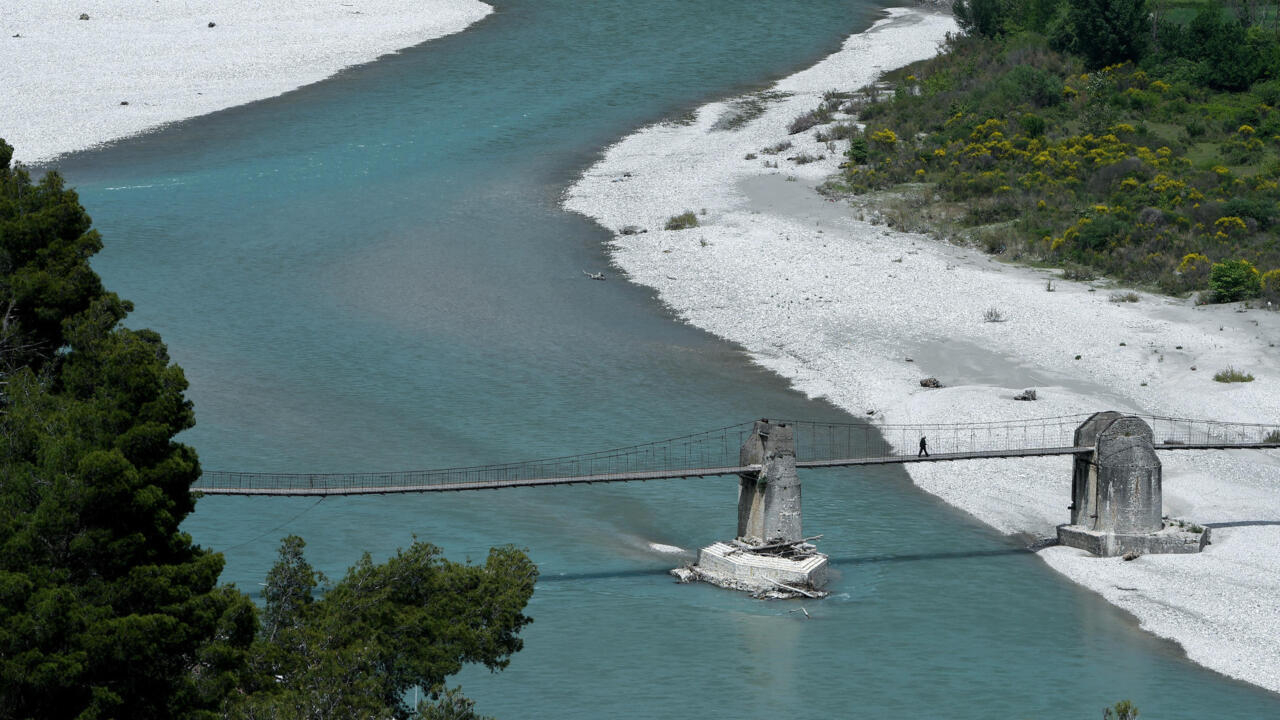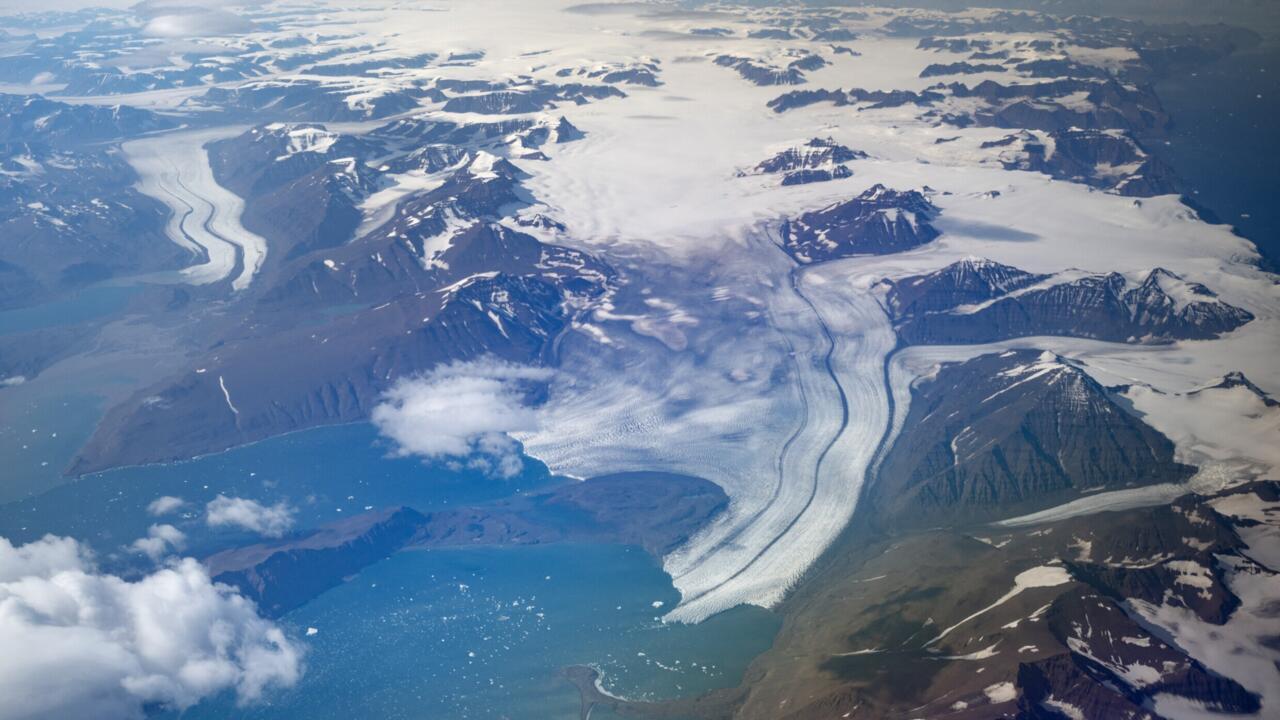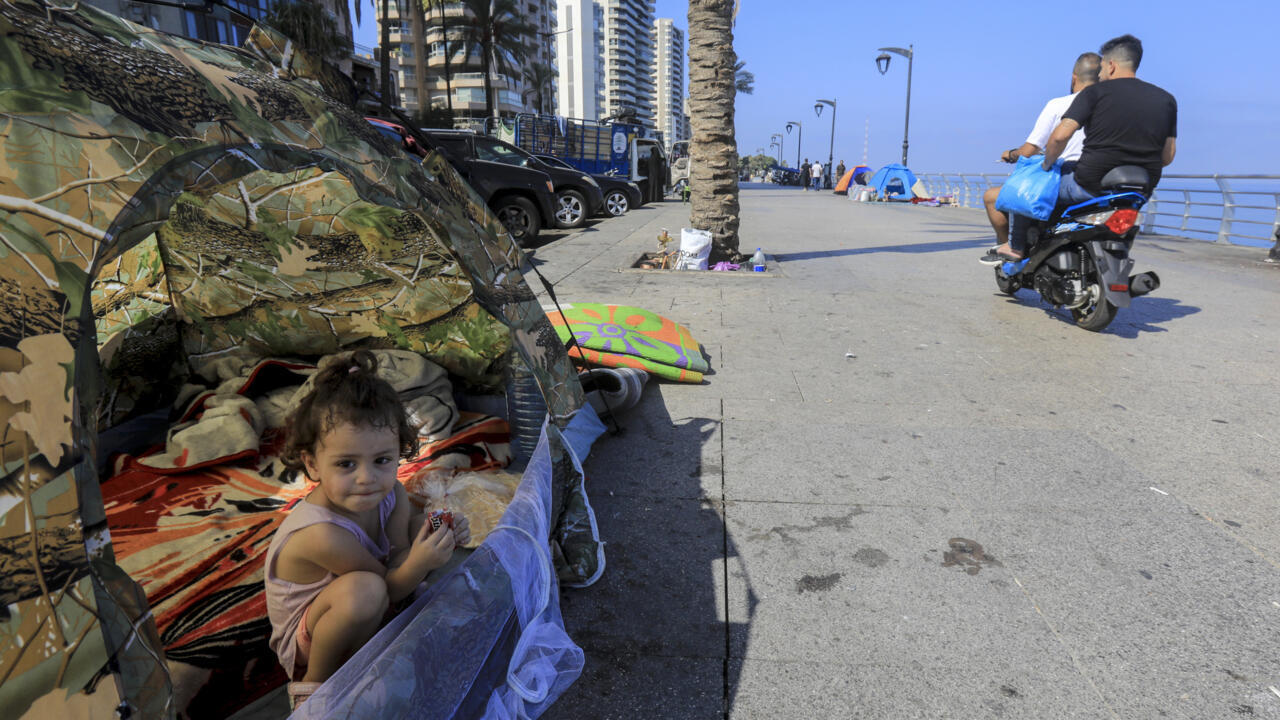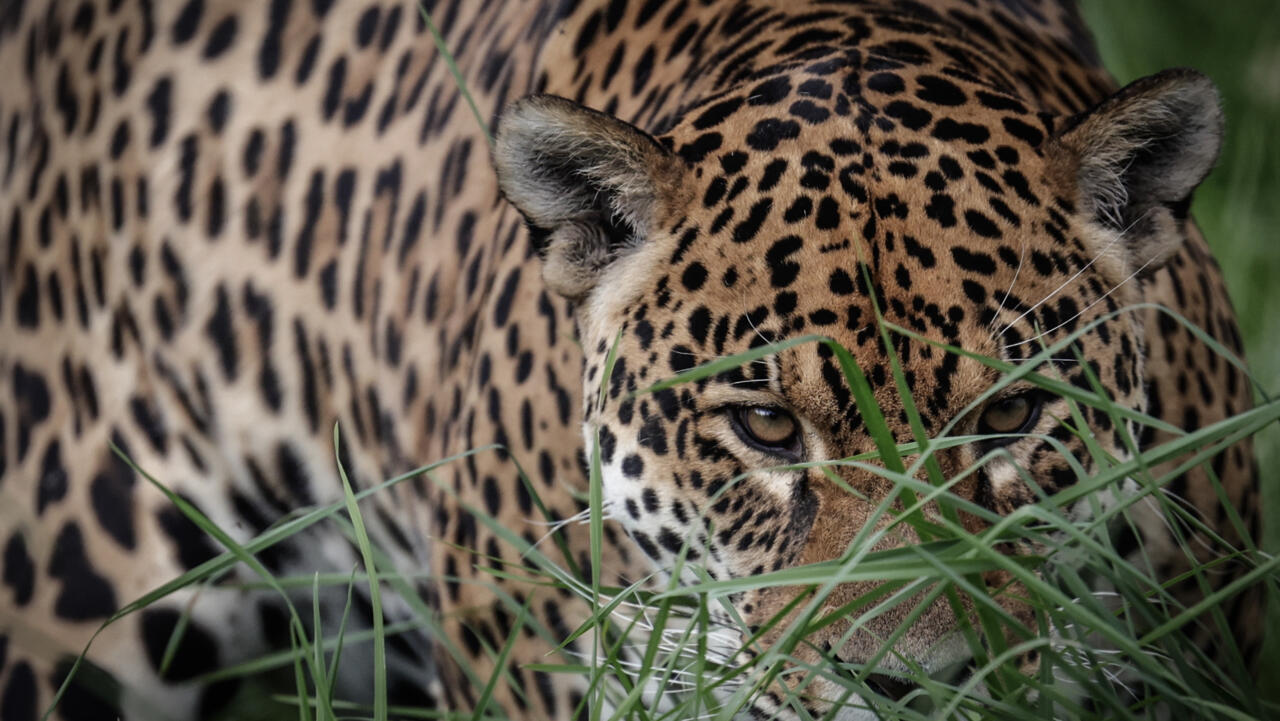Climate Crisis, Biosphere & Societal Collapse
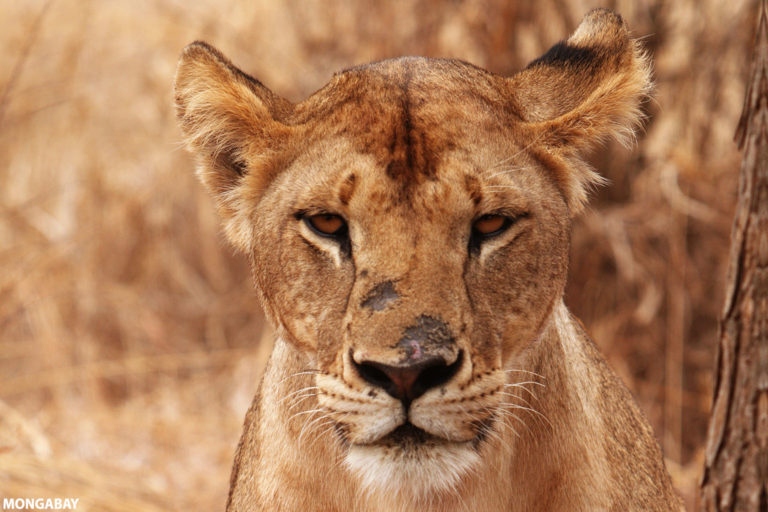 news.mongabay.com
news.mongabay.com
Here is more information: https://www.stopeacop.net A group of 28 NGOs have written to 34 banks, insurance companies and the Chinese government, urging them to deny financing and other support for oil and gas projects in Uganda. The letters, written by U.S.-based Climate Rights International (CRI) and 27 Africa-based NGOs, follow a report detailing **numerous human rights violations and environmental harms** at the Kingfisher oil project sites in Uganda. Similarly, Uganda’s Tilenga oil fields also face scrutiny over their ecological and social harms, including impacts on wildlife and displacement of local communities. Both Kingfisher and Tilenga are co-owned by French oil and gas giant TotalEnergies, the Chinese National Offshore Oil Company Uganda Ltd. (CNOOC), and the Uganda National Oil Company (UNOC). Both projects are also part of the East African Crude Oil Pipeline initiative (EACOP), where TotalEnergies is a major partner. The initiave aims to transport oil and gas from Uganda to Tanzania for export. [...] Major banks and insurance companies in Europe, Japan and North America have ruled out support for the projects, he added. “Now it’s time for all banks and insurance companies, whether in Europe, China, the Gulf States, Africa, or elsewhere, to publicly rule out any continuing or further support.” [...]
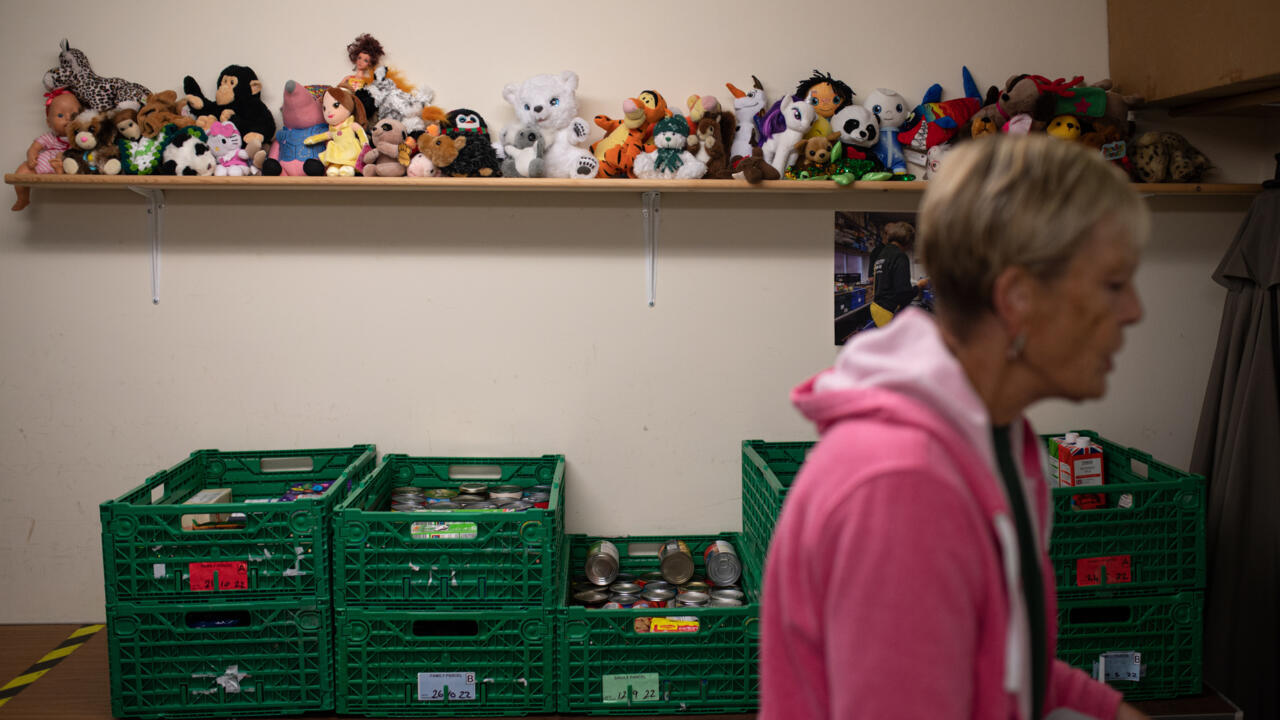 www.france24.com
www.france24.com
The findings come before the government's first budget later this month, and with a cost of living crisis that has driven soaring use of food banks. According to the report by non-governmental organisation the Trussell Trust, almost a quarter of children under four are facing extreme poverty. "Shockingly, 46 percent more children are facing hunger and hardship than two decades ago. That equates to one in five children growing up trapped in this situation," the trust said in a statement. A UNICEF report last year found that the UK -- a G7 and NATO member, and the world's sixth biggest economy -- has one of the highest rates of child poverty among richer countries.
Subsidized minivans, no income taxes: Countries have rolled out a range of benefits to encourage bigger families, with no luck
 globalvoices.org
globalvoices.org
In 2013, Chinese mining company Chinalco (中国铝业集团有限公司) sparked an international conversation about extractive impacts with the news it had successfully relocated an entire Peruvian town of 5,000 residents to clear space for a copper mine. At the time, the relocation project in Morococha, central Peru, was touted as a solution to protect villagers from pollution and environmental degradation as a result of mining practices, and as a potential template for Chinese overseas investment in Latin America. Ten years later, experts describe the move as a “tragedy.” [...] Many residents and environmental activists argue that the company has failed to honor its promises. A 2019 study by the National University of Central Peru revealed that most of the population of New Morococha believes their economy, job stability, and access to social benefits promised by Chinalco have not been fulfilled. [...] Since 2013, 96 percent of the residents in Old Morococha have been compelled to relocate to a flood-prone wetland area, which is also isolated from the central highway. The situation is even worse for some 20 families who have refused to resettle. “The remaining families in Old Morococha are facing daily harassment from the Chinese mining company Chinalco,” Borda said. “Every day, they are destroying the few houses of the settlers, until the last brick disappears.” [...] According to the Geological, Mining, and Metallurgical Institute of Perú (INGEMMET) 2017 report, the city of Old Morococha faces an “imminent, non-mitigable danger” due to severe risks, including visible structural damage, proximity to mining waste and tailings, and ongoing seismic hazards exacerbated by active mining operations. The combination of these factors renders any mitigation efforts ineffective, underscoring the extreme vulnerability of the area. [...] [The Ingemmet report] concluded that frequent floods and liquefaction of soils caused by earthquakes may affect the safety of residents living in buildings of New Morococha, where most urban facilities, including schools, religious temples, and health centers, were built within 26 months between 2010 and 2012. The report said the company has not yet informed residents of what they would do to mitigate those risks. [...]
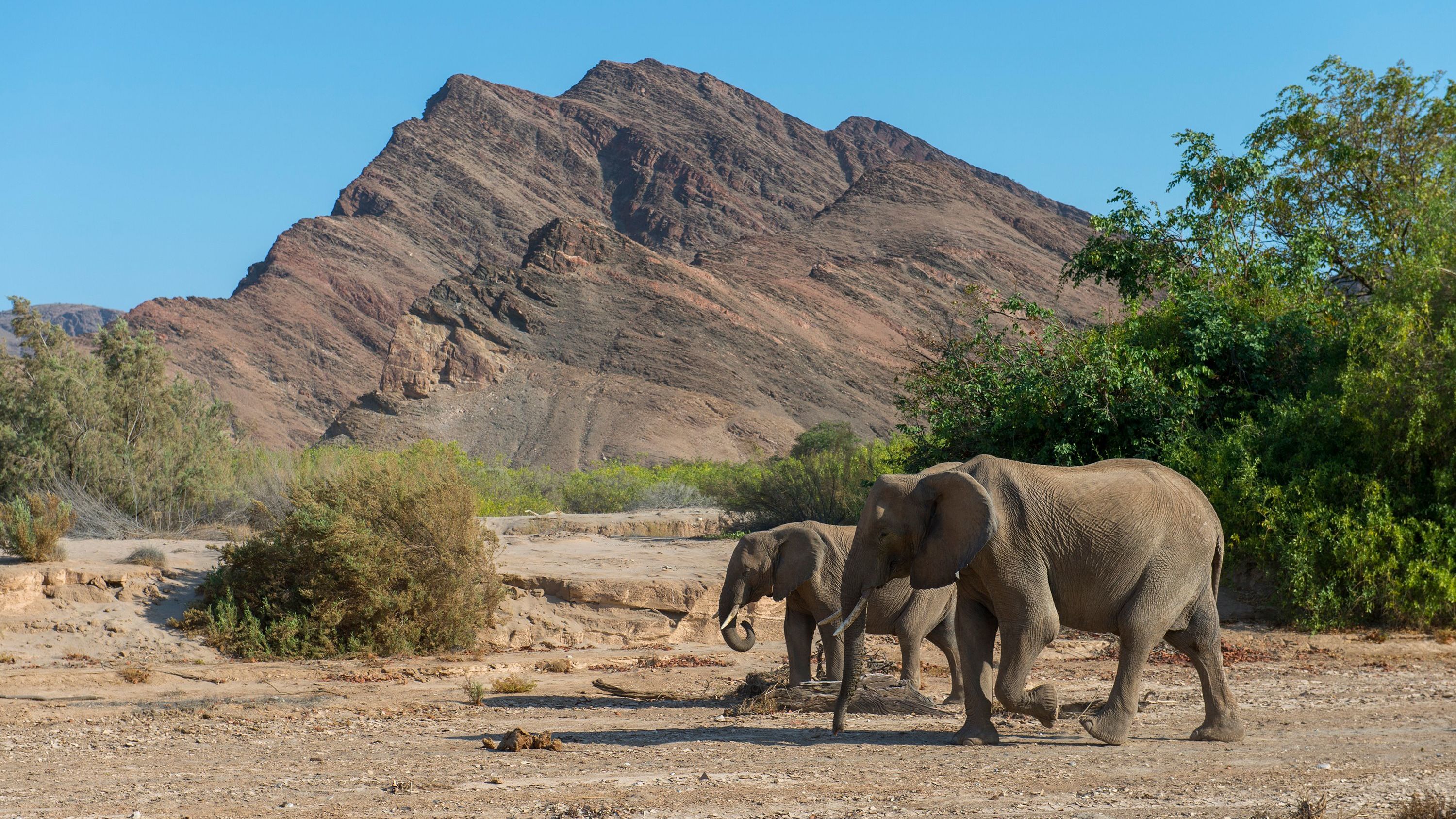 edition.cnn.com
edition.cnn.com
Drought is now so bad in parts of southern Africa that governments say they must kill hundreds of their most captivating, majestic wild animals to feed desperately hungry people. In August, Namibia announced it had embarked on a cull of 723 animals, including 83 elephants, 30 hippos and 300 zebras. The following month, Zimbabwe authorized the slaughter of 200 elephants. Both governments said the culls would help alleviate the impacts of the region’s worst drought in 100 years, reduce pressure on land and water, and prevent conflict as animals push further into human settlements seeking food.
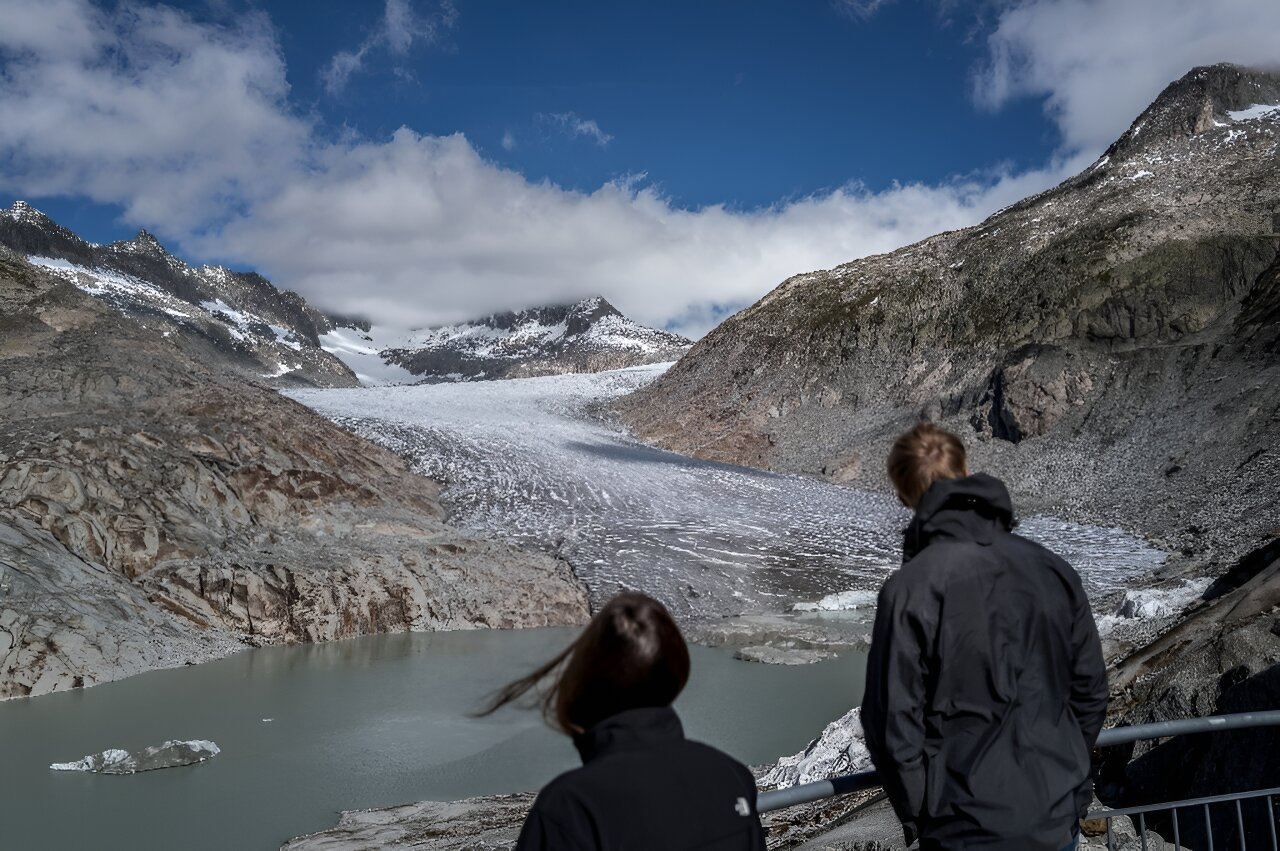 phys.org
phys.org
Increasingly intense floods and droughts are a "distress signal" of what is to come as climate change makes the planet's water cycle ever more unpredictable, the United Nations warned Monday. Last year the world's rivers were their driest for more than 30 years, glaciers suffered their largest loss of ice mass in half a century and there was also a "significant" number of floods, the UN's World Meteorological Organization said in a report. "Water is the canary in the coalmine of climate change," WMO Secretary-General Celeste Saulo said in a statement accompanying the State of Global Water Resources report. "We receive distress signals in the form of increasingly extreme rainfall, floods and droughts which wreak a heavy toll on lives, ecosystems and economies," she said. Saulo said the heating up of the Earth's atmosphere had made the water cycle "more erratic and unpredictable.
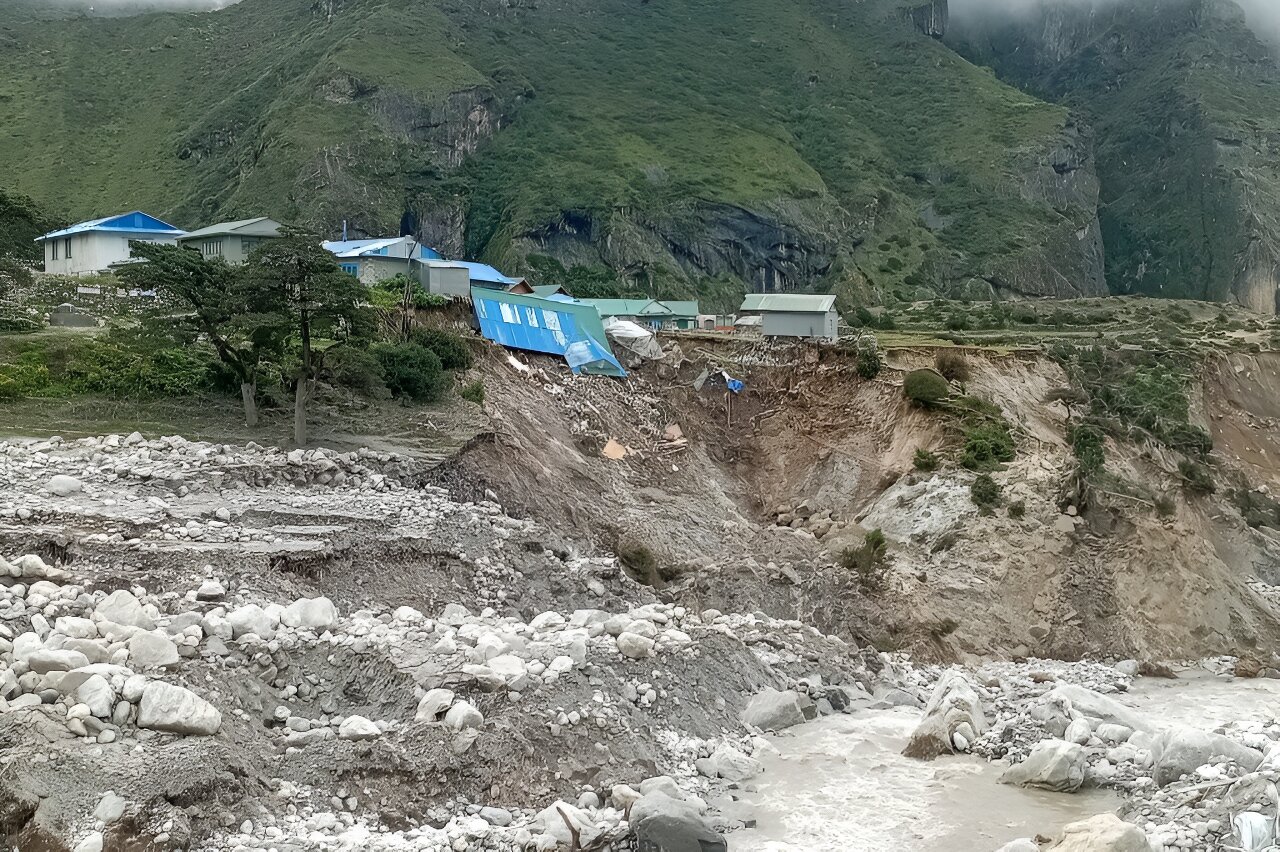 phys.org
phys.org
Nepal is reeling from its worst flooding in decades after ferocious monsoon rains swelled rivers and inundated entire neighborhoods in the capital Kathmandu, killing at least 236 people. Last weekend's disaster was the latest of several disastrous floods to hit the country this year. Thame was submerged in August by a glacial lake that burst high in the mountains above the small village, famous for its mountaineering residents. It was once home to Tenzing Norgay Sherpa, the first person to climb the world's highest mountain Everest, along with New Zealander Edmund Hillary. Experts say that the flood in Nepal was part of a frightening pattern. Glaciers are receding at an alarming rate. Hundreds of glacial lakes formed from glacial melt have appeared in recent decades. In 2020, more than 2,000 were mapped across Nepal by experts from the Kathmandu-based International Center for Integrated Mountain Development (ICIMOD), with 21 identified as potentially dangerous.
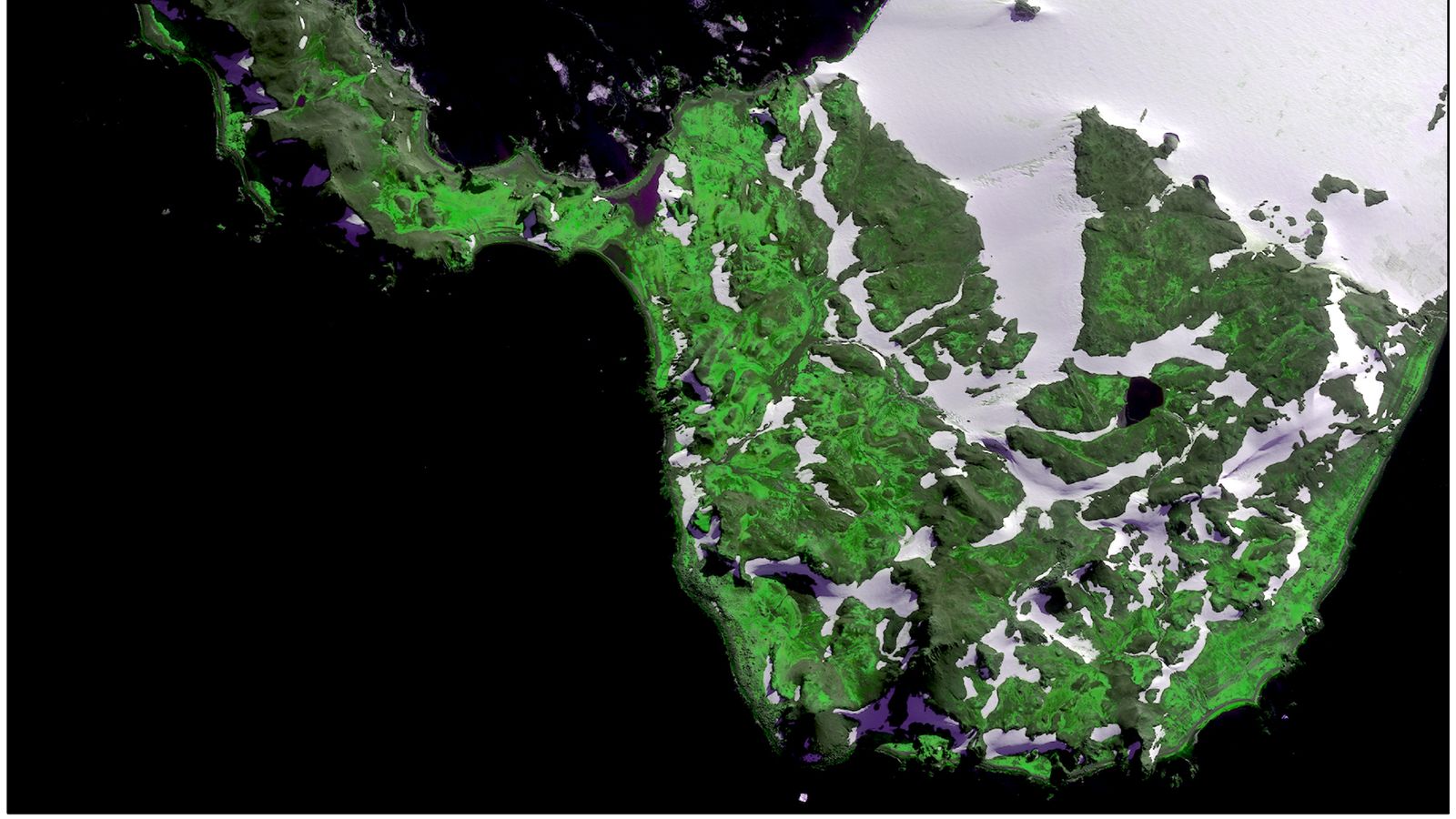 news.sky.com
news.sky.com
Parts of Antarctica are turning green more quickly than previously thought, leaving scientists "shocked" at the impact of climate change in the region. The area covered by vegetation in the Antarctic Peninsula is 10 times larger than four decades ago, a UK research team has said. It means the 800-mile (1,300km) area in the northernmost part of the continent - could become vulnerable to invasive species as a result.
cross-posted from: https://slrpnk.net/post/13985944 > cross-posted from: https://lemy.lol/post/32287179 > > > One of the more far-fetched rumors is that Helene was an engineered storm to allow corporations to mine regional lithium deposits. Others accuse the administration of President Joe Biden of using federal disaster funds to help migrants in the country illegally, or suggest officials are deliberately abandoning bodies in the cleanup.
 www.cnbc.com
www.cnbc.com
- Fed up with China's employment situation, young people on the mainland are retreating to the countryside. - Job hunting has been particularly difficult for young people as the Chinese economy struggles, said Chung Chi Nien, chair professor at Hong Kong Polytechnic University.
 northfortynews.com
northfortynews.com
[Archived version](http://web.archive.org/web/20241002191619/https://northfortynews.com/category/news/report-names-donors-bankrolling-climate-change-disinformation/) Here is the [report (pdf)](https://ips-dc.org/wp-content/uploads/2024/09/Fossil_Fuel_Philanthropy_Report.pdf) A new report shows how U.S. taxpayers are subsidizing disinformation about climate change. Co-author Chuck Collins is co-founder of the Climate Accountability Research Project. He said people with ties to the fossil fuel industry are bankrolling groups trying to block action on climate change through tax-deductible donations. “There are 137 organizations that are actively involved in promoting climate disinformation,” said Collins, “challenging the science, sowing doubt, blocking alternatives. Their goal is to run out the clock and keep extracting their profits.” [...] Many donors are now listed online at [ClimateCriminals.org](https://www.climatecriminals.org) ([archived version](http://web.archive.org/web/20241002191619/https://www.climatecriminals.org/)), which also features a countdown to a deadline set in Paris to cut fossil fuel emissions in order to prevent the worst impacts of climate change.
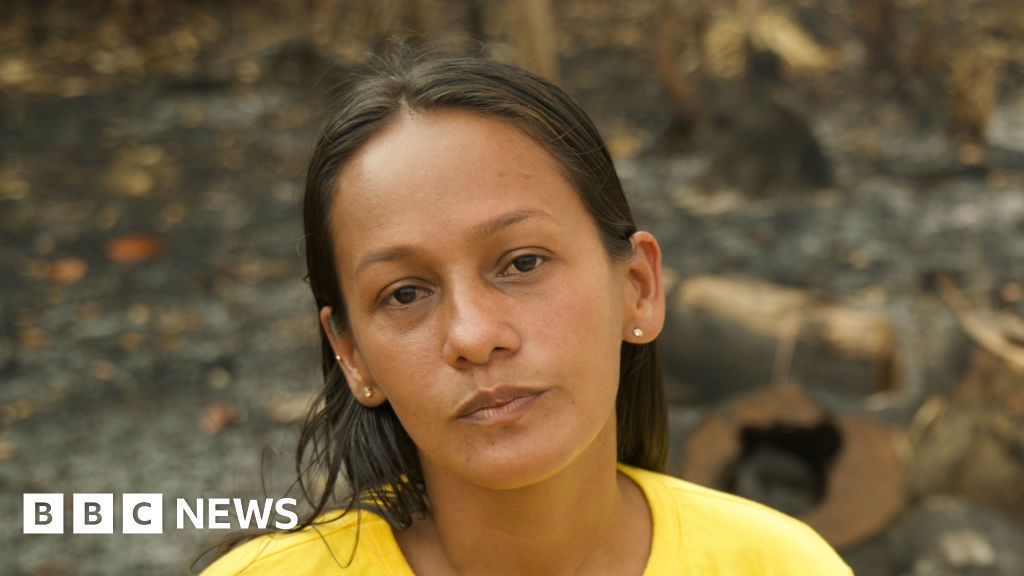 www.bbc.com
www.bbc.com
In recent years, deforestation has slowed in the Amazon. But despite attempted crackdowns by state authorities, lawlessness is still rife, and the state presence feels minimal. Some of the Amazon is privately owned by individuals or companies. Private owners are meant to conserve 80% of the rainforest on their land by law, and can develop the remaining 20%. But this is not well policed. Some of the land is classified as a state-owned protected reserve, or as an indigenous reserve. Some land though is undesignated entirely - meaning it is not privately owned by anyone, and has also not been protected as a reserve. Those areas are particularly vulnerable to land-grabs. Everywhere you drive or fly over in the south of Amazonas state, mines, loggers and farms are visible. [...] The fires may be mostly started by humans, but they have been made worse by Brazil’s worst-ever drought, which has turned the normally damp vegetation into a dry tinderbox. The drought has seen the level of the rivers drop to historic lows, and almost 60% of the country is under stress from the drought.
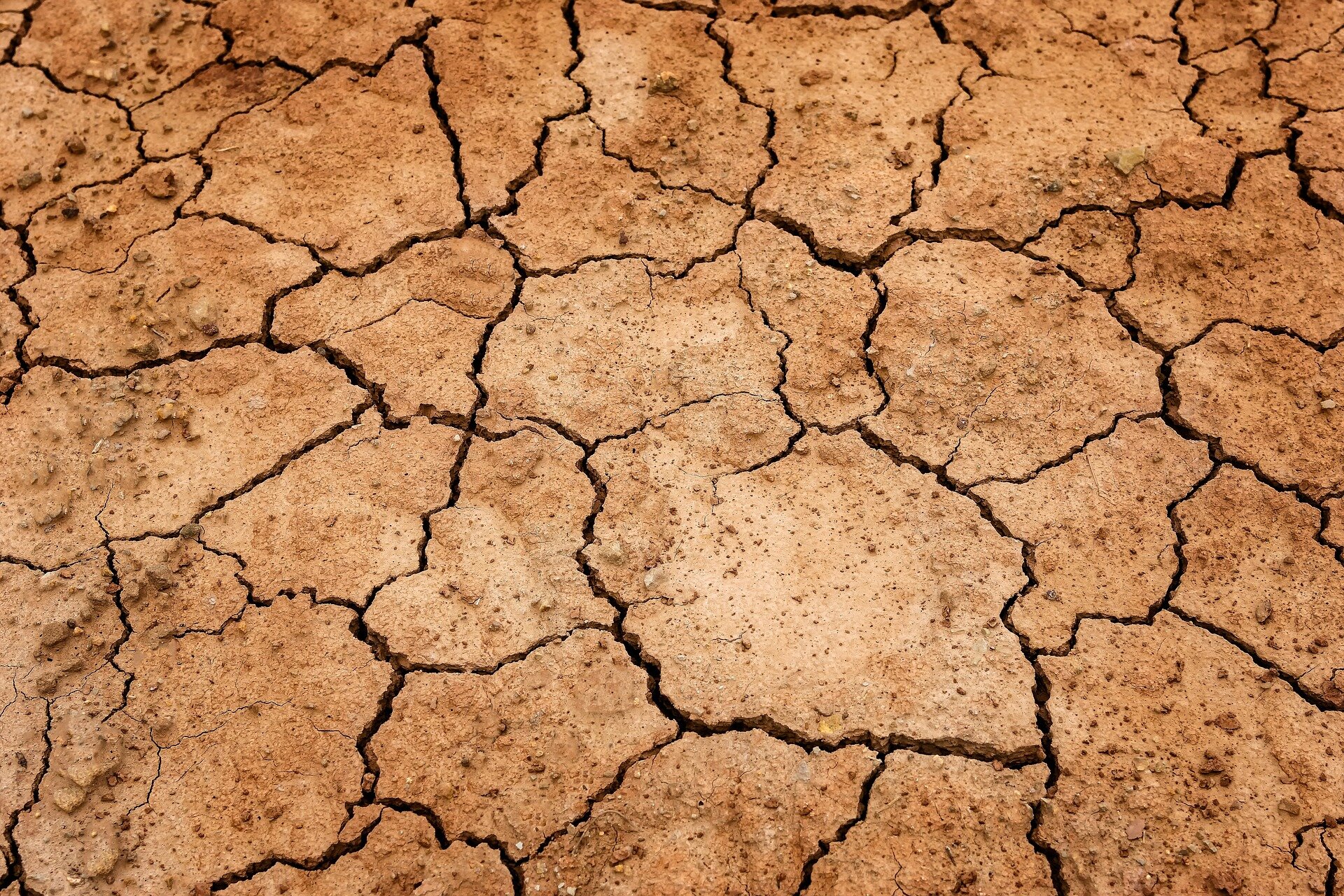 phys.org
phys.org
A rare combination of three major climate factors—El Niño, the positive phase of the Indian Ocean Dipole, and the warm phase of the Tropical North Atlantic—has contributed, along with climate change, to intensifying drought conditions in South America, southern Africa, and parts of the Mediterranean and eastern Europe. The [report](https://publications.jrc.ec.europa.eu/repository/handle/JRC139423), "Global Drought Overview—September 2024," published by the European Commission's Joint Research Center (JRC), shows the gravity of these temperature and rainfall anomalies. Several regions of the world have experienced very pronounced warm temperature anomalies. In July 2024, these anomalies exceeded 3°C in north-western North America, eastern Canada, the Mediterranean, eastern Europe, south-eastern and central Africa, Iran, western and central Russia, Japan, and Antarctica. The extreme drought conditions have pushed millions of people from food stress to crisis levels in many regions of the world. With less food available, vulnerable populations will be further exposed to hunger and malnutrition. In southern Africa, millions of people are expected to require food aid in the coming months. Rivers, lakes, and water reservoirs have been drying up as a result of the combination of prolonged lack of rain and high evaporation caused by the high temperatures. In South America, rivers such as the Amazon have been at alarmingly low water levels, threatening agriculture, drinking water supplies, transportation and hydropower production. In southern Africa, the very low water flow of the Zambezi River—a critical source of hydroelectric power for several countries—has been causing power shortages and blackouts, with several indirect consequences.
 www.theguardian.com
www.theguardian.com
Half of all Haitians are struggling every day to find food as rampant gang violence and lawlessness are causing “the worst hunger emergency in the western hemisphere”, a report has found. The UN World Food Programme (WFP) and its partner organisations estimate that 5.4 million Haitians are now regularly finding it hard to get enough to eat, a record for the Caribbean nation and the largest proportion of acutely food insecure people anywhere in the world, WFP said. The figure suggests another 600,000 people have fallen into “crisis” level hunger since the previous peaks recorded earlier this year and in 2023. A coalition of 12 leading aid agencies has called for immediate action to alleviate the escalating hunger crisis as gang control of major roads blocks food supplies and causes huge price rises. “Without immediate action the hunger crisis in Haiti will continue to deepen, with devastating consequences for millions of vulnerable people,” civil society groups in Port-au-Prince, including Action Against Hunger, Save the Children and Mercy Corps warned in an open letter.
 www.chosun.com
www.chosun.com
South Korea is projected to face a sharp demographic shift in the coming decades, with a declining birth rate and aging population leading to increased social burdens on the working-age population. In six years, it is projected that two working-age adults in South Korea will need to support one elderly person or child. By 2058, just 34 years from now, the forecast suggests that one working-age adult will have to support one dependent, either an elderly person or a child. This projection stems from the country’s rapidly declining birth rate and aging population, which are expected to lead to a surge in social costs.
 www.theguardian.com
www.theguardian.com
Russia is suspected of deliberately leaking chemical waste into a river, with deadly consequences for wildlife. Ukrainian officials say the Russians deliberately poisoned the Seym River, which flows into the Desna. The Desna connects with a reservoir in the Kyiv region and a water supply used by millions. The pollution crossed the international border just over a mile away and made its way into Ukraine’s Sumy region. The Seym’s natural ecosystem crashed. Fish, molluscs and crayfish were asphyxiated as oxygen levels fell to near zero. Settlements along the river reported mass die-offs.
Every year on Aug. 20, meteorologists at Colorado State University ring a bell to signal the start of peak hurricane season — a weeks-long stretch when hot ocean temperatures tend to generate frequent and destructive storms. But this year, the tradition gave way to an eerie, echoing quiet, with storm activity in the Atlantic at its lowest level in 30 years despite projections of a historic season. That lull came to a decisive end this week, when Hurricane Helene slammed into Florida’s Big Bend with violent, deadly force. Fueled by exceptionally warm Caribbean waters, the Category 4 storm is one of the biggest to ever make landfall in the United States — and forecasters are already warning that additional cyclones are hot on its heels. This lopsided hurricane season illustrates the challenges facing forecasters as climate change makes extreme weather less predictable and more intense. Even as some scientists say that Helene’s rapid growth and historic rainfall are signatures of a storm influenced by human-caused warming, they are still striving to understand whether this year’s unusual storm activity is a fluke or a sign of things to come. “Is every season going to be like this? It’s hard to say,” said Phil Klotzbach, a meteorologist at Colorado State University. “We’ll just have to keep our eyes to the sky.” With the world shifting into a La Niña weather pattern, which is typically associated with severe hurricanes, and “off the charts” water temperatures in the Atlantic, experts projected that this season would be among the worst in decades. But after experiencing Beryl in July, its earliest-ever Category 5 hurricane, the ocean basin saw the longest stretch in more than 50 years without a single late-summer cyclone. “The season wasn’t the way we expected it to play out,” Klotzbach said. “And we’re still trying to figure out why.” Archive : https://archive.ph/BLLxu
 www.newsweek.com
www.newsweek.com
Sloths, the famously slow-moving yet adorable creatures native to Central and South America, could face extinction by the end of the century due to climate change. Researchers investigating how sloths respond to rising temperatures have found that the animals' slow metabolism and limited ability to regulate body temperature may leave them unable to survive in a warming world—especially for populations living in high-altitude regions. "Despite being iconic species, comprehensive long-term population monitoring simply hasn't been conducted at a scale that reflects the true challenges sloths face," lead researcher Rebecca Cliffe told Newsweek. "However, from our 15 years of working with sloths in Costa Rica, we are very concerned. In areas where sloths were once abundant, we have observed their populations completely disappear over the past decade." The study, published in PeerJ Life & Environment, focused on two-fingered sloths inhabiting both lowland and highland environments in Costa Rica. "Sloths are uniquely vulnerable to rising temperatures due to their physiological adaptations," Cliffe said. "They survive on an extremely low-calorie diet, so conserving energy is critical for them. "One key way they do this is by not actively regulating their body temperature like most mammals do—temperature regulation is an energy-intensive process." A major concern is that sloths' slow digestion rates—up to 24 times slower than similar-sized herbivores—make it difficult for them to increase food intake to meet rising metabolic demands. This slow metabolic rate, combined with their minimal energy-processing capacity, means that sloths cannot easily balance the increased energy requirements brought on by higher temperatures. Published study : https://doi.org/10.7717/peerj.18168
“Texas has this sort-of macho heat thing, that we’re ‘Texas tough’ and we’re not going to let a little heat stop us. Heat builds character and sweat is how you get tough,” Jeff Goodell said, adding that such attitudes are “really dangerous.”
 www.france24.com
www.france24.com
The report by the Potsdam Institute for Climate Impact Research (PIK) details nine factors that are crucial for regulating the planet's ability to sustain life. In six of these areas, the safe limit has already been exceeded in recent years as a result of human activity. The crucial threshold for ocean acidification could soon become the seventh to be breached, according to the PIK's first Planetary Health Check. The safe boundaries that have already been crossed concern crucial -- and related -- factors including climate change; the loss of natural species, natural habitat and freshwater; and a rise in pollutants, including plastics and chemical fertilisers used in agriculture. "As CO2 emissions increase, more of it dissolves in sea water... making the oceans more acidic," Boris Sakschewski, one of the lead authors, told reporters. "Even with rapid emission cuts, some level of continued acidification may be unavoidable due to the CO2 already emitted and the time it takes for the ocean system to respond," he explained. "Therefore, breaching the ocean acidification boundary appears inevitable within the coming years."
 www.theguardian.com
www.theguardian.com
Rafaela Drumond death a police officer in June 2023 was bullied relentlessly by her colleagues, was one of 152 suicides among Brazilian law enforcement agents last year, the highest number on record and a 13.4% increase from 2022, according to a new report released on Thursday. “The number of public security officers who commit or attempt suicide is steadily rising,” says the report, produced by the Institute for Research, Prevention, and Studies on Suicide (IPPES) and the Public Labour Prosecution Office. Among last year’s deaths, 9% were women – slightly below the proportion of female officers in the forces, which ranges from 12% to 16%. Twelve men and two women killed their wives, partners or exes before taking their own lives. Three of the murdered women had protective orders against their killers. According to the researchers, the phenomenon is underreported, as some forces still refuse to share their statistics.
 news.mongabay.com
news.mongabay.com
- A total of 2 million hectares (5 million acres) of forests, wetlands and grasslands will be razed to make way for a cluster of giant sugarcane plantations. - And much of the sugar produced from the Merauke project won’t even be used for food. The government plans to develop sugarcane-derived bioethanol as part of its transition away from fossil fuels. - Satellite imagery analysis shows that 30% of the concessions appear to fall inside a zone that the government previously declared should be protected under a moratorium program. - A similar megaproject in Merauke, the Merauke Integrated Food and Energy Estate (MIFEE), initiated by Jokowi’s predecessor turned out to be a failure, used as cover to establish oil palm and pulpwood plantations instead.
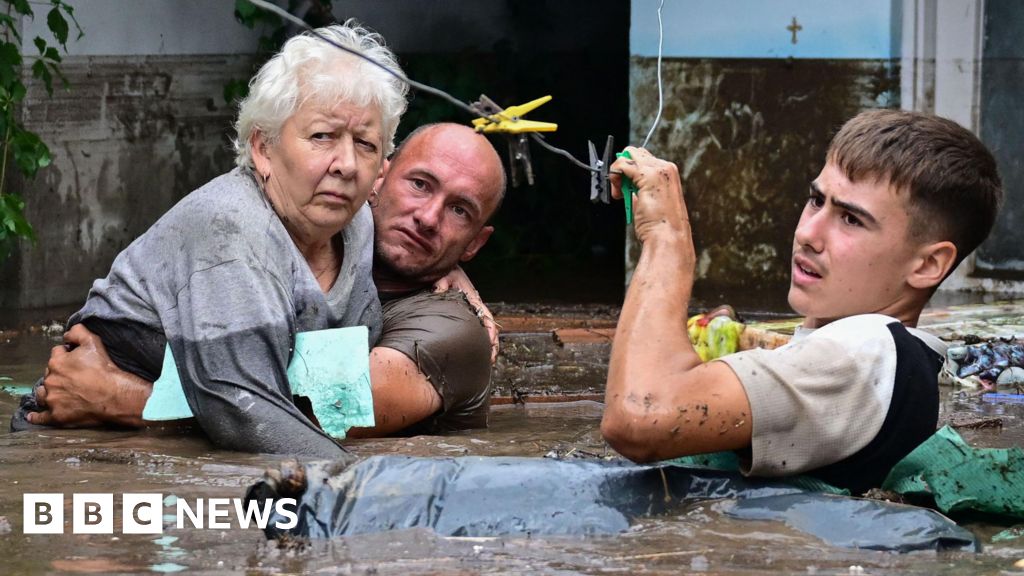 www.bbc.com
www.bbc.com
Central Europe's devastating floods were made much worse by climate change and offer a stark glimpse of the future for the world's fastest-warming continent, scientists say. Storm Boris has ravaged countries including Poland, the Czech Republic, Romania, Austria and Italy, leading to at least 24 deaths and billions of pounds of damage. The World Weather Attribution (WWA) group said one recent four-day period was the rainiest ever recorded in central Europe - an intensity made twice as likely by climate change. One reason Boris has produced so much rain is that the weather system got 'stuck', dumping huge amounts of water over the same areas for days. There is some evidence that the effects of climate change on the jet stream - a band of fast-flowing winds high up in the atmosphere - may make this 'stalling' phenomenon more common. But this is still up for debate. Even if we don't get more 'stalled' weather systems in the future, climate change means that any that do get stuck can carry more moisture and therefore be potentially disastrous. “The [severity of the] flood events is going to increase considerably in the future, so if you keep the flood protections at the same level as they are today, the impacts may become unbearable for societies in Europe,” explains Francesco Dottori of IUSS in Pavia, Italy.
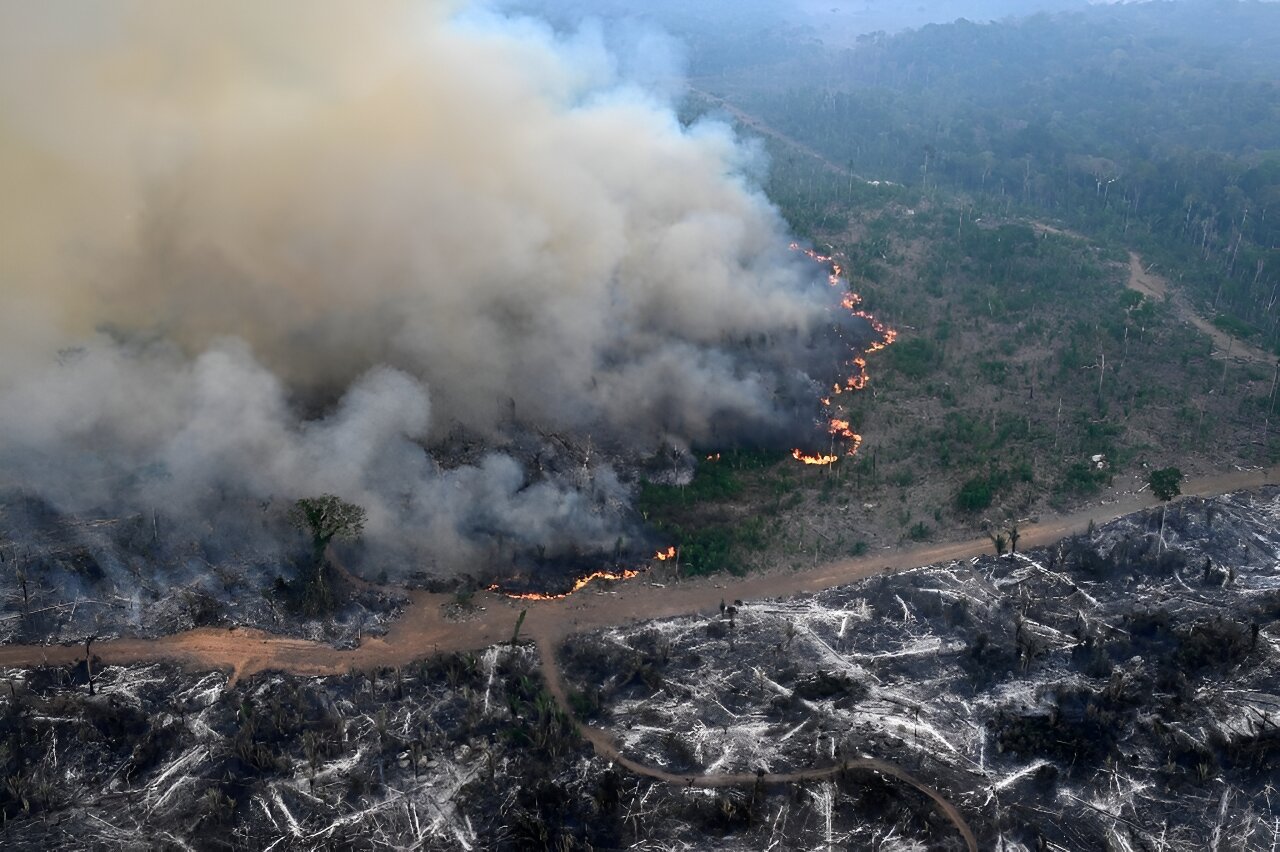 phys.org
phys.org
The Amazon rainforest has lost an area about the size of Germany and France combined to deforestation in four decades, fueling drought and record wildfires across South America, experts said Monday. The world's biggest jungle, spanning nine countries, is crucial to the fight against climate change due to its ability to absorb planet-warming carbon dioxide from the atmosphere. However, researchers say a record spate of wildfires this year has instead released massive amounts of carbon dioxide back into the atmosphere. Various scientific reports have laid out the grim links between forest loss and a changing climate and the devastation that can follow for humans and wildlife. Deforestation, mainly for mining and agricultural purposes, has led to the loss of 12.5 percent of the Amazon's plant cover from 1985 to 2023, according to RAISG, a collective of researchers and NGOs. This amounts to 88 million hectares (880,000 square kilometers, 339,773 square miles) of forest cover lost across Brazil, Bolivia, Peru, Ecuador, Colombia, Venezuela, Guyana, Suriname and French Guiana.
[Archived link](https://web.archive.org/web/20240924082810/https://www.independent.co.uk/news/world/europe/polar-bear-shot-iceland-b2617243.html) A rare polar bear that was spotted outside a cottage in a remote village in Iceland was shot by police after being considered a threat, authorities said Friday. The bear was killed Thursday afternoon in the northwest of Iceland after police consulted the Environment Agency, which declined to have the animal relocated, Westfjords Police Chief Helgi Jensson told the Associated Press. “It's not something we like to do,” Jensson said. “In this case, as you can see in the picture, the bear was very close to a summer house. There was an old woman in there.”
 www.theguardian.com
www.theguardian.com
Typhoid, also known as enteric fever, is an infection caused by contaminated food or water. If left untreated, it kills one in five. But the cure is a simple course of antibiotics. Most people, if they get the drugs promptly, should start recovering within a few days. But the antibiotics used to cure typhoid are now failing. The bacteria, Salmonella typhi, have developed resistance to the antibiotics meant to kill them. It’s a pattern repeated across the world; the problem of resistant infections is global and borderless. And children across the village – on the outskirts of Peshawar, northern Pakistan – had been falling ill. The hospital was rammed. On the children’s ward, each single bed held four or five patients. “Typhoid was once treatable with a set of pills and now ends up with patients in hospital,” says Jehan Zeb Khan, the clinical pharmacist at the hospital. Infection was caused by extensively drug resistant (XDR) typhoid – a strain of “superbug” that emerged in Pakistan in 2016. XDR-typhoid is resistant to almost all of the antibiotics that are supposed to treat the disease, so options are limited and death rates are higher.
 www.koreatimes.co.kr
www.koreatimes.co.kr
South Korea is projected to see its population drop significantly over the next 50 years, and its global population ranking fall by 30 notches over the ultra-low birth rate and rapid aging, data showed Monday. The country's population is projected to come to 36 million in 2072, down 30.8 percent from this year's 52 million. Its population peaked in 2020 and has been on a decline, according to the data by Statistics Korea. The world population, however, is forecast to continue to rise during the cited period to reach 10.22 billion in 2072, compared with an estimated 8.16 billion this year. South Korea was the world's 29th most populous country in 2024, but the ranking is expected to fall to 59 in the 2072, the agency said.
 www.independent.co.uk
www.independent.co.uk
The US is set to break a new record number of homeless people with more than half a million people living on the street this year. Data collected and reviewed by The Wall Street Journal from more than 250 homeless organizations have counted at least 550,000 homeless people so far, a 10 percent rise from last year’s reports. The numbers gathered from cities and rural areas show homelessness as it was on a single night earlier this year. The upward trend means that the US will probably reach and pass the 2023 estimate of 653,000 homeless people. It’s the highest number since the government began sharing such data in 2007. The final estimate of the number of unhoused people will depend on data not yet reported from areas such as New York City, which had the highest population of any city in 2023. Contributing to the most recent rise are migrants bused by Texas to cities such as Chicago and Denver. Large numbers of migrants have also arrived in New York, increasing the numbers last year.

